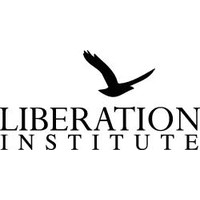Emotionally Focused Couples Therapy (EFT)
An Approach to Couple Therapy Developed by Dr. Sue Johnson
“When people can share their deepest emotions with each other and feel heard and understood, it creates a powerful emotional bond that can withstand even the toughest challenges.” – Dr. Sue Johnson, Hold Me Tight: Seven Conversations for a Lifetime of Love

The basic premise of EFT is that people are wired for connection and attachment, and that the quality of emotional attachment in a relationship is the key factor in relationship satisfaction and success. The EFT model focuses on identifying and changing negative patterns of interaction that create distance and disconnection between partners. EFT aims to help partners develop more secure attachment bonds by strengthening emotional engagement and responsiveness.
“We must learn to listen and respond to our partner’s emotions, not just their words.”
The therapeutic process in EFT involves several stages.

The first stage is assessment, where the therapist works with the couple to identify their patterns of interaction and the underlying emotions that are driving these patterns. The therapist helps the couple to identify their needs and desires, and to communicate them more effectively to each other. The second stage involves creating a safe emotional space where partners can begin to share their deeper emotions and needs with each other. This involves helping partners to identify and express their vulnerabilities, and to be more responsive to each other’s emotional cues.
“In order to create lasting change in a relationship, we must first address the underlying emotions and attachment needs that drive our behavior.”
The third stage focuses on restructuring negative patterns of interaction and developing new ways of relating to each other. The therapist works with the couple to identify and interrupt negative cycles of interaction, and to create new patterns of emotional engagement and responsiveness.
“Love is not the icing on the cake of life; it is a basic primary need, like oxygen or water.”

The final stage of EFT involves consolidation and integration, where the couple practices and reinforces their new patterns of interaction in order to strengthen their emotional bond and create a more secure attachment.
“The key to lasting love is emotional responsiveness.”
EFT is a highly structured and evidence-based approach to couple therapy and has been shown to be effective in helping couples overcome a wide range of relationship problems, including communication difficulties, infidelity, sexual problems, and emotional disconnection.
Benefits of Emotionally Focused Therapy
There are a number of benefits that couples and families can gain from EFT. Some of these include:
- Better emotional functioning: EFT provides a language for healthy dependency between partners and looks at key moves and moments that define an adult love relationship. The primary goal of the model is to expand and re-organize the emotional responses of the couple.
- Stronger bonds: EFT is based on attachment theory, which suggests that attachments between people typically provide a safe haven—a retreat from the world and a way to obtain comfort, security, and a buffer against stress.4
- Improved interpersonal understanding: EFT helps people become more aware of their partner’s needs. Because of this awareness, they are also able to listen and discuss problems from a place of empathy instead of a place of defensiveness or anger.
Effectiveness

There is a substantial body of research outlining the effectiveness of this treatment. It is now considered one of the most (if not the most) empirically validated forms of couples therapy. Emotionally focused therapy can be an effective way for couples to form stronger bonds and build better relationships. Research has found that EFT can improve interactions between partners and reduce the amount of stress that people experience in their relationships.
A 2019 systematic review found that EFT was an effective treatment for improving marital satisfaction. This recovery is also quite stable and lasting, with little evidence of relapse back into distress.
Overall, EFT is an approach to couple therapy that emphasizes the importance of emotional engagement and responsiveness in creating a secure and satisfying relationship. Through the therapeutic process of EFT, couples can learn to identify and express their deeper emotions, and to develop new patterns of interaction that strengthen their emotional bond and deepen their connection.
References
Beasley, C. C., & Ager, R. (2019). Emotionally Focused Couples Therapy: A Systematic Review of Its Effectiveness over the past 19 Years. , (2), 144–
Johnson, S. M. (2019). Attachment theory in practice: Emotionally focused therapy (EFT) with individuals, couples, and families. The Guilford Press.
Johnson, S. M. (2019). Attachment theory in practice: Emotionally focused therapy (EFT) with
Johnson, S. M. (2008). Hold me tight: Seven conversations for a lifetime of love. Little, Brown Spark.
Johnson, S. M. (2013). Love sense: The revolutionary new science of romantic relationships.
Johnson, S. M. (2004). The practice of emotionally focused couple therapy: Creating connection. Brunner-Routledge.
by Clay David, MFA
Marriage and Family Therapist Trainee
Supervised by Brad Byrum, MA, MBA, LMFT, BC-TMH
California Marriage & Family Therapist #118448



